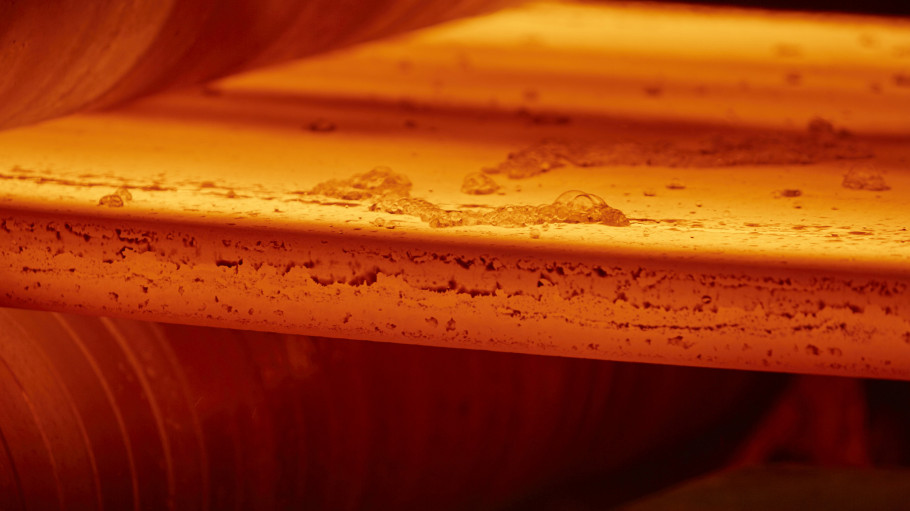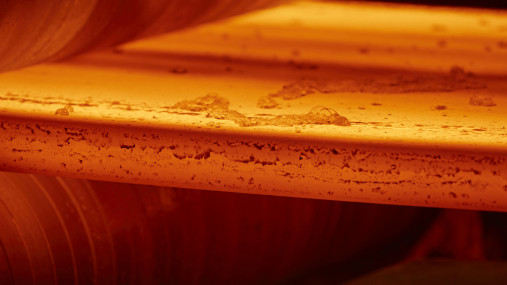
Press releases » Updated EU industrial policy strategy shows firm EU support for steel sector’s decarbonisation efforts in post-COVID era – Steel industry sees urgency for EU Steel Action Plan
Updated EU industrial policy strategy shows firm EU support for steel sector’s decarbonisation efforts in post-COVID era – Steel industry sees urgency for EU Steel Action Plan
Downloads and links
Recent updates

Brussels, 06 May 2021 – The European Steel Association (EUROFER) welcomes the release of the EU’s updated industrial policy strategy, and the inclusion of a specific analysis on steel. It shows the EU’s support for sectors, such as steel, that are strategic to the European economy and that are pushing to rally and decarbonise in the post-COVID era, but that are dependent on an enabling framework preventing carbon leakage.
“The COVID crisis highlighted the fragility of the Single Market, as well as the strategic dependencies the EU has on the rest of the global economy. We needed a functioning, updated strategy – one that accounts for the shocks wrought by the COVID crisis”, said Axel Eggert, Director General of EUROFER. “We are pleased to see that the Commission has accounted for the specific challenges that steel faces – and the incredible potential and ambition we have to decarbonise if the right incentives for green steel are set”.
The original strategy, published in March 2020, attempted to provide a framework for a coordinated and holistic effort to improve the Union’s industrial competitiveness and innovation in both digital and the green transition.
“The first strategy laid out how successful alliances can be in delivering on specific policy goals, such as in hydrogen, batteries and raw materials”, added Mr Eggert. “The update must account for the changed policy objectives after the most recent crisis – favouring strategically important, green value chain projects, such as those the European steel industry is working on”.
The European steel industry has over 100 decarbonisation projects underway across Europe which could, over the next few years and if fully implemented, help the sector reduce its emissions by 30% by 2030 (compared to 2018; 55% compared to 1990). By 2050, the steel sector wants to be close to carbon neutrality.
“We did not expect the strategy to present fully-fledged solutions for the major challenges the steel industry and other sectors are facing, but it is a start at putting the puzzle together”, added Mr Eggert. “To be successful, the industrial strategy’s analysis and ‘toolbox’ on steel must be forged into a Steel Action Plan. This work should be led at the highest level by policymakers, employers and unions, taking full account of the upcoming fit-for-55% climate package”.
“A market for green steel must be created, support for research, development and innovation secured, workers prepared for the transition, international trade competitiveness preserved, carbon leakage prevented, environmental and climate costs shared, and risks balanced”, concluded Mr Eggert. “We are looking forward to seeing how this updated strategy can positively impact EU industry, society and the environment”.
Contact
Charles de Lusignan, Spokesperson and Head of Communications, +32 2 738 79 35, (charles@eurofer.be)
About the European Steel Association (EUROFER)
EUROFER AISBL is located in Brussels and was founded in 1976. It represents the entirety of steel production in the European Union. EUROFER members are steel companies and national steel federations throughout the EU. The major steel companies and national steel federations in Switzerland and Turkey are associate members.
The European Steel Association is recorded in the EU transparency register: 93038071152-83.
About the European steel industry
The European steel industry is a world leader in innovation and environmental sustainability. It has a turnover of around €170 billion and directly employs 330,000 highly-skilled people, producing on average 160 million tonnes of steel per year. More than 500 steel production sites across 22 EU Member States provide direct and indirect employment to millions more European citizens. Closely integrated with Europe’s manufacturing and construction industries, steel is the backbone for development, growth and employment in Europe.
Steel is the most versatile industrial material in the world. The thousands of different grades and types of steel developed by the industry make the modern world possible. Steel is 100% recyclable and therefore is a fundamental part of the circular economy. As a basic engineering material, steel is also an essential factor in the development and deployment of innovative, CO2-mitigating technologies, improving resource efficiency and fostering sustainable development in Europe.

Download files or visit links related to this content
How global overcapacity is destroying European industries
European Steel in Figures 2025 is EUROFER's statistical handbook, laying out in an easy-to-use format the key statistics and data about the performance and footprint of one of Europe's most important strategic sectors
A snapshot of Europe’s steel industry in motion, with EUROFER at the forefront in a time of policy shifts and global uncertainty